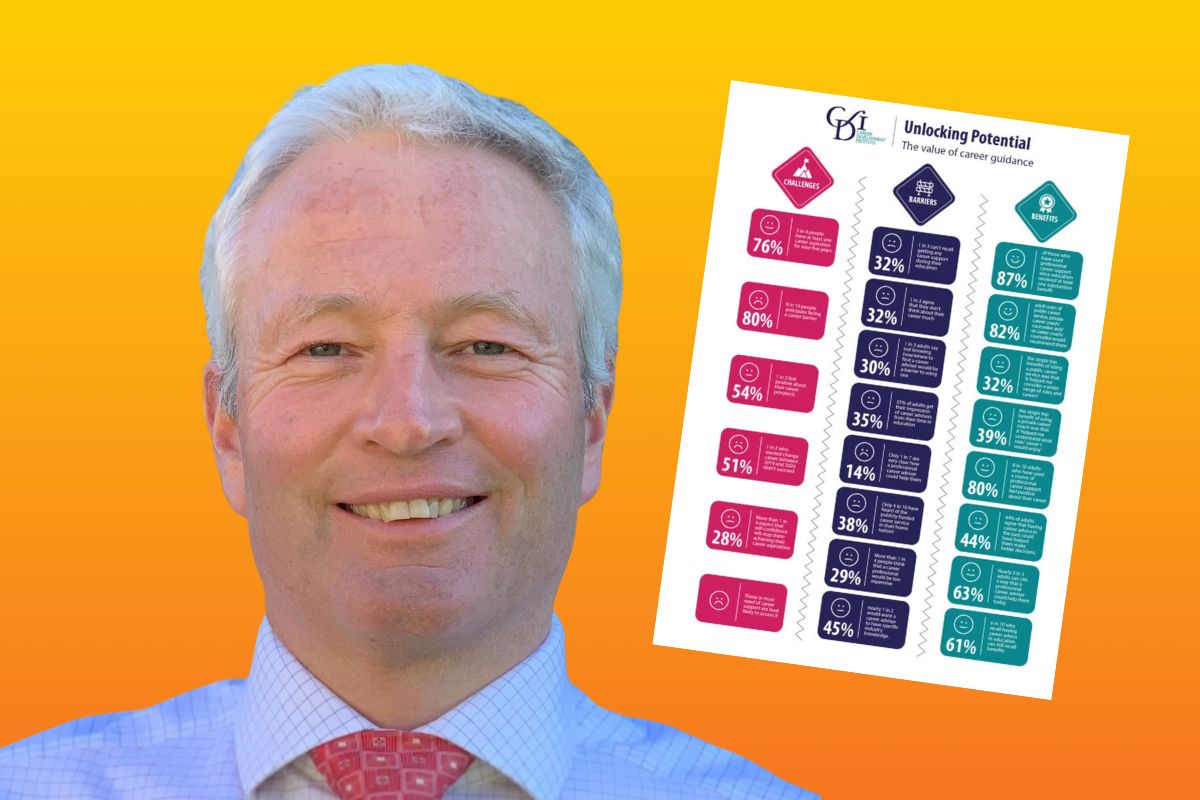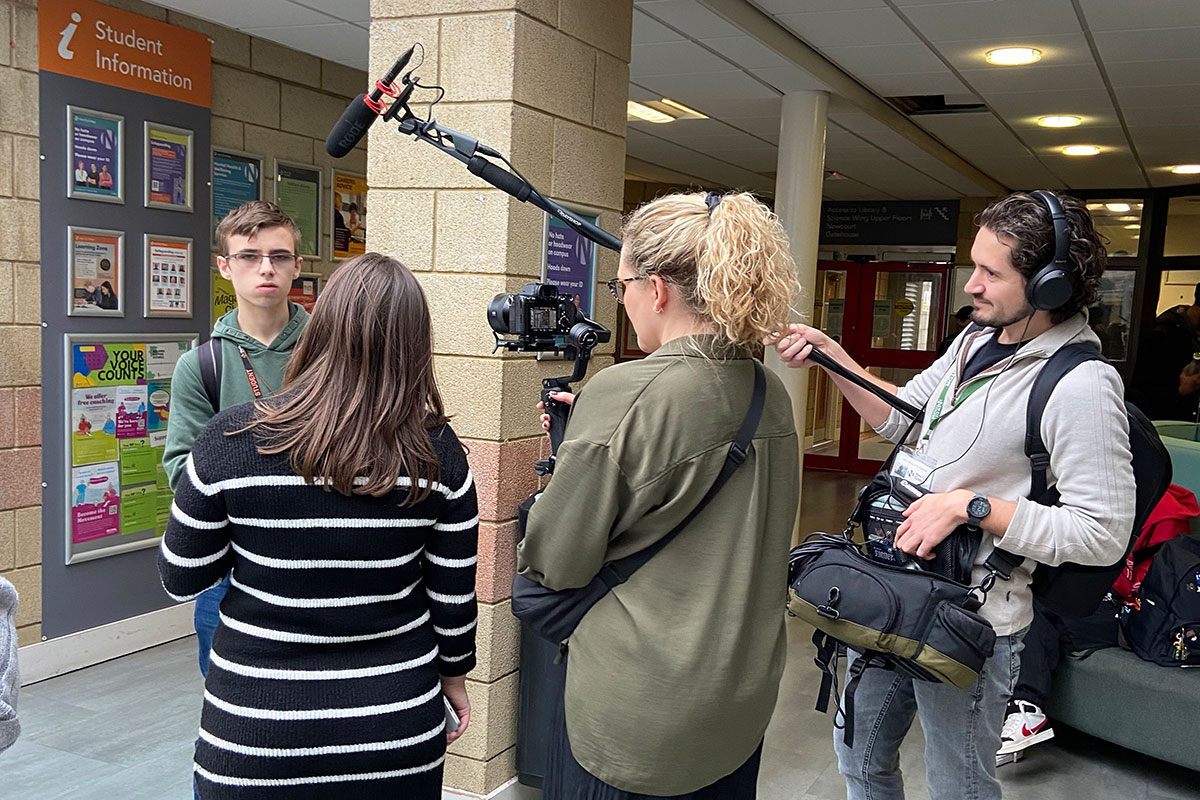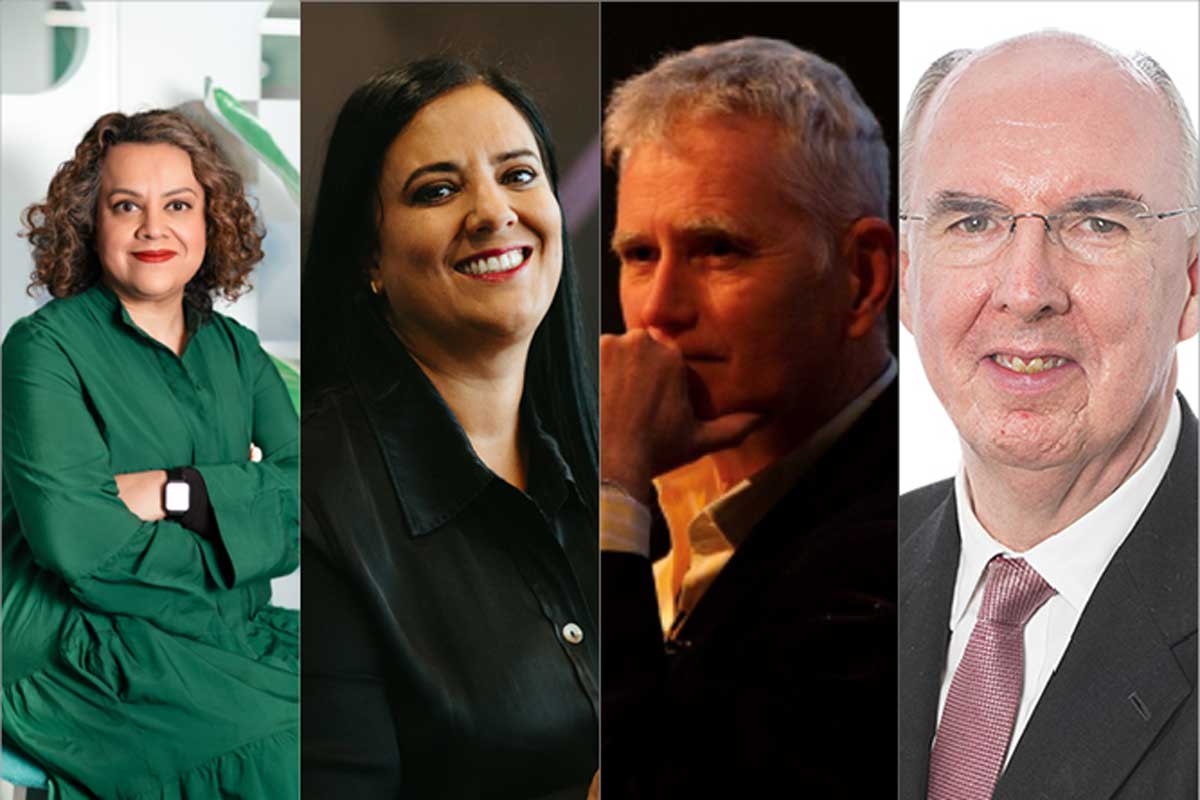Mental health, pupil attendance, teacher recruitment and UK’s Covid-19 inquiry feature in brand new Committee Corridor podcast

Committee Corridor: Select committee podcast returns with two new hosts and focus on equalities and democratic engagement
It is ‘absolutely morally correct’ that children’s voices are heard through the process of the UK’s Covid-19 inquiry, the Children’s Commissioner for England, Dame Rachel de Souza tells the select committee podcast, Committee Corridor, in the first episode of a new series.
In Education report card, post-pandemic, new host Caroline Nokes MP hears from the Children’s Commissioner for England, Dame Rachel de Souza before turning to the Chairs of the Education and Public Accounts Committees, Robin Walker MP and Dame Meg Hillier MP, whose committees have been working on related inquiries.
Children have been through an ‘unprecedented experience’ of seeing schools closed and being restricted to their homes, the Children’s Commissioner tells podcast host Caroline Nokes MP. They have “probably taken the biggest hit because childhood is very short.”
“The impact of lockdown has only just been seen in terms of mental health concerns, attendance and the general impact of how children feel.” A significant number of children were seriously vulnerable and I absolutely think we should be hearing from them.”
“Grasping the nettle” of mental health anxiety needs to be a priority, she says, from mild anxiety to serious mental health issues, with rising levels of eating disorders and higher tier CAMHS serious disorders.
While academic learning is “incredibly important” to enable young people to achieve their goals, she says that pupils need to relearn how to play out and take part in the sports, arts, clubs and doing things together.
The Children’s Commissioner calls for education to be a priority for Government. “I really want the ministers, the prime minister, the opposition, talking about education every day. If we are going to create the future that the kids tell me they want and need and a successful country – education has to be the focus. And all those things we’ve talked about around mental health, SEND being an increased need. We need to focus on those.”
The Department for Education’s recovery programme for education is the subject of a recent report from the Public Accounts Committee, chaired by Dame Meg Hillier MP. The Committee warned of a ‘lost decade ‘in education for disadvantaged children, in particular.
“We’ve highlighted some real concerns in this most recent report, and there’s still opportunity for the Government to ramp up and support those pupils. But I think a lot of this is in the national consciousness about how long it will take to really recover from Covid, not just in schools, but across a lot of other areas as well.”
Latest figures on persistent absence reveal that almost one fifth of children were not regularly in school during Autumn 2022, in contrast to a figure of around 10% before lockdowns. The Education Select Committee has been investigating the reasons behind persistent absence and support for disadvantaged pupils.
Chair, Robin Walker MP, said children on free school meals, in receipt of the Pupil Premium, and those with special educational needs are more likely to be absent from school for longer.
“The evidence that we’ve heard on select committees, is that it’s often unmet need where either children or their parents feel that their needs are not being met in school, which means that the children are spending longer out of school.”
Asked whether the relentless focus on attainment is what pupils want or need, and whether an extended school day would give pupils a chance to recover their mental wellbeing as well as their academic learning, the Education Chair said,
“That’s got to be right. And I think the balance of what engages pupils in school is really important as well. If pupils don’t feel that they’re going to be able to do what they enjoy and what they’re good at in school, they’re more likely to be anxious. They’re more likely to develop mental health problems around being in school.”
All of the podcast’s guests acknowledged the current pressures on school staff. “We need to have support for our teachers as well, because we’re not going to get this next generation through this challenge post-COVID and onwards to the sort of economy and world we want to see without investment in teaching,” said Dame Meg Hillier.
The Education Committee is also investigating teacher recruitment, training and retention. “What we want to do now, is identify some of the new approaches that may be needed to address both this massive epochal challenge of getting the best, most experienced teachers, keeping them in the classroom, and allowing them to develop in their careers, alongside dealing with the long tail of the pandemic,” added Robin Walker.
The UK public inquiry into Covid-19 has been set up to examine the UK’s response to the pandemic, its impact and the lessons for the future. Although its terms of reference include the impact of the pandemic on children and young people, including health, wellbeing and social care, there is no provision to hear from children under the age of 18. The Children’s Commissioner has submitted evidence to the inquiry and says she will continue to do so.
Committee Corridor, the podcast from Parliamentary select committees, returns on Friday, June 23. Key issues of equalities and engagement with democracy will feature in the latest series, which in a change to previous series, will be weekly and released on Fridays. It will be hosted by the chairs of the Women and Equalities and Petitions Committees, Caroline Nokes MP (Conservative MP for Romsey and Southampton North) and Catherine McKinnell MP (Labour MP for Newcastle upon Tyne North).











Responses